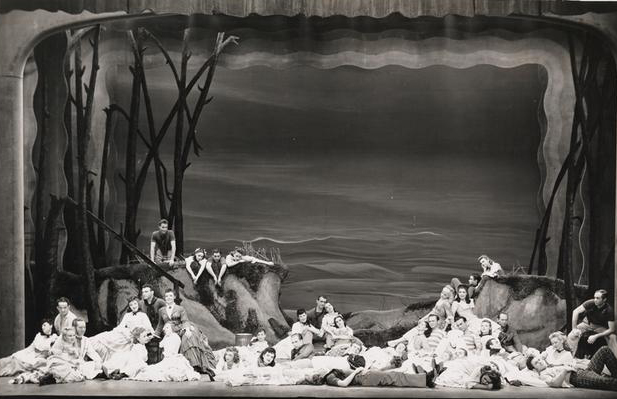Rodgers and Hammerstein II’s joyous clambake is among the significant changes to Ferenc Molnár‘s bleak Liliom. It’s a setup for the unhappiness that follows when Billy Bigelow botches a robbery and dies, leaving his beloved Julie Jordan pregnant and alone.
The lyrics for “A Real Nice Clambake” capture the vernacular diction of Maine:
This was a real nice clambake,
We’re mighty glad we came.
The vittles we et/ Were good, you bet,
The company was the same.
Our hearts are warm. Our bellies are full,
And we are feeling prime.
This was a real nice clambake,
And we all had a real good time.
We said it ‘afore, and we’ll say it again,
We all had a real good time!
Cleverly, it also includes a clambake menu: codfish chowder (with onions and ribbons of salt pork), steamed lobsters with melted butter, and steamed clams.
Featured Image: 1945 production, directed by Rouben Mamoulian with choreography by Agnes DeMille.
See Richard Rodgers and Oscar Hammerstein, II. Carousel. Adapted by Benjamin Glazer. Directed by Rouben Mamoulian, 1945; Ferenc Molnár. Liliom: A Legend in Seven Scenes and a Prologue. Translated by Benjamin F. Glazer. New York: Boni and Liveright, 1921; Henry King. Carousel (1956). Screenplay by Phoebe and Henry Ephron based Richard Rodgers and Oscar Hammerstein II’s musical drama (1945)

